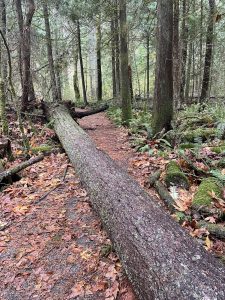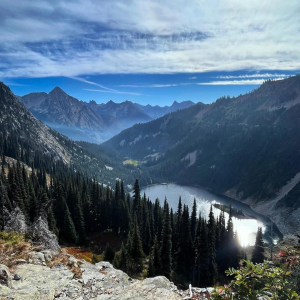 The Columbia City Yoga on-line Moving into Meditation class met this morning. We reflected on our inter-dependence and how the choices we make locally affect others globally. We attuned to our compassionate and wise “grandmother’s heart.” May this wisdom enable us to live our lives with conscientiousness and care.
The Columbia City Yoga on-line Moving into Meditation class met this morning. We reflected on our inter-dependence and how the choices we make locally affect others globally. We attuned to our compassionate and wise “grandmother’s heart.” May this wisdom enable us to live our lives with conscientiousness and care.
We heard the story of the Quechua people as told in the New York Times article, Where Rivers Run Red. Their story is one of adaptation, collaboration and mutual support. It is also story of an indigenous people living as they close to the land as they have for centuries. Their land and life ways are at risk as glaciers continue to melt and their water is poisoned. They have little influence over the global choices that are melting the glacial source of living water. This insight might inspire us to consider how we consume water and other resources. Perhaps we can live more simply so others may simply live.
 We read from the Roshi Joan Halifax essay, Grandmother’s Heart. She observes that “life is in need of balance and life is in the balance.” Roshi urges us “to find that immoveable center, that plumb line that aims toward gravity, the wise elder within us. Let’s find that strong back that supports our soft front, and let’s find or call out our grandmother’s heart.”
We read from the Roshi Joan Halifax essay, Grandmother’s Heart. She observes that “life is in need of balance and life is in the balance.” Roshi urges us “to find that immoveable center, that plumb line that aims toward gravity, the wise elder within us. Let’s find that strong back that supports our soft front, and let’s find or call out our grandmother’s heart.”
Welcome. Our last class focused on how we attend. Our caring attention enables us to come alongside each other in courage and in “en-couragement.” We needed these qualities during the great windstorm that demanded our attention. It left hundreds of thousands without power; leveled countless trees and damaged many homes and cars; downed power-lines have stopped traffic and communication. Businesses, groceries, libraries and schools were closed. Traffic lights went dark. Many of our habitual activities were no longer possible or even safe.
This was a call to pause, breathe and feel. This was a call for compassionate action. Many of us helped friends, families and strangers. This was also a time to realize our inter-dependence. Collaboration and mutuality make our lives possible. Many hands bring us electricity and shelter, food and water, communication and transportation, emergency services and health care. I realize that I have come to depend on and expect this abundance. This was a call to feel gratitude.
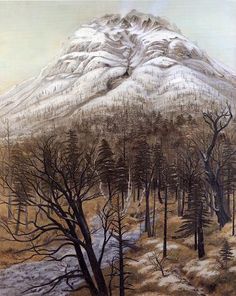 This experience made me think of the indigenous Quechua people of the Cordillera Blanca in the Peruvian Andes. The Cordillera Blanca mountain range has the world’s largest concentration of tropical glaciers. The Quechua people depend on glacial meltwater for their needs. They raise lamas and alpacas and practice subsistence farming. They live in small villages. Their collaboration and mutuality have made life possible for them. Their strong spiritual connection to the mountains and glaciers sustains them. Water is sacred.
This experience made me think of the indigenous Quechua people of the Cordillera Blanca in the Peruvian Andes. The Cordillera Blanca mountain range has the world’s largest concentration of tropical glaciers. The Quechua people depend on glacial meltwater for their needs. They raise lamas and alpacas and practice subsistence farming. They live in small villages. Their collaboration and mutuality have made life possible for them. Their strong spiritual connection to the mountains and glaciers sustains them. Water is sacred.
Since 1962, the Cordillera glacier mass has decreased over 40 percent. This has increased the incidents of natural disasters, such as avalanches and glacial lake outburst floods (GLOFs) which cause devastating landslides. Last week’s NYT article, Where Rivers Run Red, describes “acid rock drainage,” a process in which exposed rock leaches toxic metals and turns water acidic. A number of rivers and streams are no longer safe for human consumption.
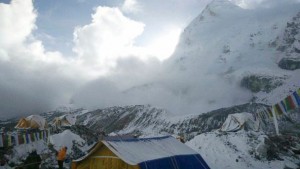 Until recently these high altitude villagers have been able to adapt to earthquakes and avalanches. But now, they are losing glacial meltwater and what is left is poisonous for irrigation and drinking. I can only imagine the strength and resilience that enables them to live in one of Earth’s harshest environments. I also sense the fragility of their traditional life ways and home lands. They are now facing an existential global threat. They cannot separate themselves from the consequences of choices made by others around the world.
Until recently these high altitude villagers have been able to adapt to earthquakes and avalanches. But now, they are losing glacial meltwater and what is left is poisonous for irrigation and drinking. I can only imagine the strength and resilience that enables them to live in one of Earth’s harshest environments. I also sense the fragility of their traditional life ways and home lands. They are now facing an existential global threat. They cannot separate themselves from the consequences of choices made by others around the world.
Learning about the Quechua has called me to pause, feel, and breathe. I reflect on how I consume water. The choices I make affect the air others breathe, the water others may or may not have. I wish there was some way I could get them access to clean water. I – my separate me – am too small to do this. And yet, Buddhism teaches that when we choose to serve someone we are serving everyone. In this greater, universal sense, a compassionate act serves everyone.
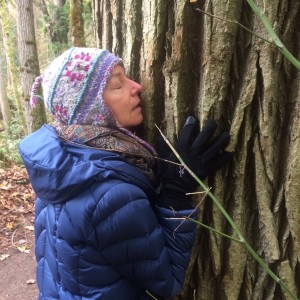 We know that the world needs our attention and care. Mindfulness practice enables us to offer “just and loving attention” to the world. Roshi Joan Halifax describes this as having a “grandmother’s heart” and seeing others with “grandmother’s eyes.” This is the heart of compassionate action and the eyes that do not look away from suffering.
We know that the world needs our attention and care. Mindfulness practice enables us to offer “just and loving attention” to the world. Roshi Joan Halifax describes this as having a “grandmother’s heart” and seeing others with “grandmother’s eyes.” This is the heart of compassionate action and the eyes that do not look away from suffering.
We can reflect on what it means to cultivate “grandmother’s heart” and to see others with “grandmother’s eyes.” We can attune to our hearts today – the hearts that are humble and wise with lived experience. What is calling for our devotion? How do we enter the slow time of wholehearted, just and loving attention?
I invite you to take some time to create a posture that will give you support for your life, right now, in this moment. A posture that supports a balance of the heart. Roshi Joan calls this: strong back, soft front. In wholehearted attention we are training our eyes to see. We are training in freeing the heart to feel deeply. Each of us is a field of awareness. We absorb and carry everything we’ve lived. We are exploring the field today. I invite you to take a few moments to recall your heart’s intention.
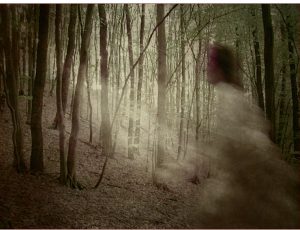 You might take a few deep, slow breaths. As you are ready, begin to cultivate embodied presence by moving awareness to sensations. Where do you feel grounded and stable? Perhaps connecting with the back body, sit bones, legs and feet. You might feel upper back, shoulders, arms and hands. Neck and head. Sense the wholeness of the body resting on Earth’s body. You might sense the living world inside: mountains, rivers, sun energy, tree breath becoming your breath.
You might take a few deep, slow breaths. As you are ready, begin to cultivate embodied presence by moving awareness to sensations. Where do you feel grounded and stable? Perhaps connecting with the back body, sit bones, legs and feet. You might feel upper back, shoulders, arms and hands. Neck and head. Sense the wholeness of the body resting on Earth’s body. You might sense the living world inside: mountains, rivers, sun energy, tree breath becoming your breath.
What is the nature of this elemental stream in this moment? There may be areas that are charged with energy. There may be agitation, anticipation. There may be a sense of heaviness, tiredness or torpor. You can notice your chest and breathing sensations. How does Body feel before emotion or thought?
You might ask: How am I? Perhaps there are emotions or thoughts present. Pause gives choice. What to follow? How does emotion or thought feel in Body? Heart? Mind? You may be meeting inner stillness. What parts of the Body are still? What parts are moving? While we hold attention we can also remember: “It is alright to be exactly what you are, who you are, where you are. Right here, right now.” Can you meet experience with loving attention?
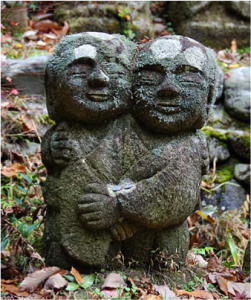 Caring attention allows feeling or thought to be in the field along with whatever self-care that is needed. What kindness, patience or resolve can I offer myself? There may be other qualities – love, tenderness, equanimity. What is the quality most needed at this time? You might offer yourself a metta prayer for the quality most needed. May I be kind. May I be loving. May I be generous. May I be patient. May I be strong. May I be compassionate. May I serve wisely.
Caring attention allows feeling or thought to be in the field along with whatever self-care that is needed. What kindness, patience or resolve can I offer myself? There may be other qualities – love, tenderness, equanimity. What is the quality most needed at this time? You might offer yourself a metta prayer for the quality most needed. May I be kind. May I be loving. May I be generous. May I be patient. May I be strong. May I be compassionate. May I serve wisely.
In connecting with these supportive qualities you might sense their deeper meaning, their transpersonal nature. We all suffer. We all want to be happy. We are all deserving of care. Kindness. Compassion, Sympathetic joy, Equanimity. All these qualities have their roots in care. You might offer others a metta prayer for their safety, happiness and well-being. That they may be safe and well. May they have the water they need for a flourishing life.
 We may sense each other resting in the field of loving awareness. Abiding in the great field, we can know there is caring and being cared for. Take a breath or two to allow yourself to know this. You can allow any associations you have with caring and being cared for to surface in the field. You can connect with that loving grandmother being inside.
We may sense each other resting in the field of loving awareness. Abiding in the great field, we can know there is caring and being cared for. Take a breath or two to allow yourself to know this. You can allow any associations you have with caring and being cared for to surface in the field. You can connect with that loving grandmother being inside.
Roshi Joan Halifax reminds us that:
Each person is a river of life. I have found myself nourished by so many strong and beautiful rivers.
May we feel ourselves as nourishing, strong and beautiful rivers flowing through our troubled world. May we remember we are part of a circle of many compassionate beings. When we realize our precarity, the tender vulnerability we share, we can recall those who actively care and protect humans and more than humans – including ourselves.

